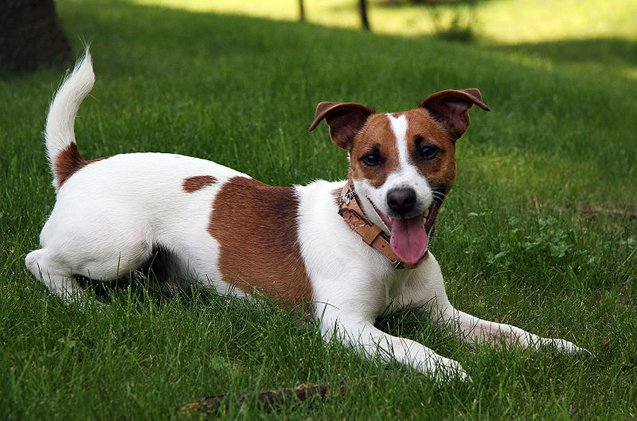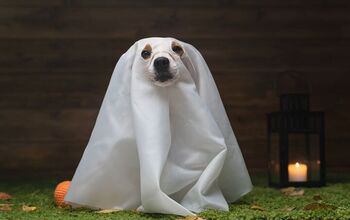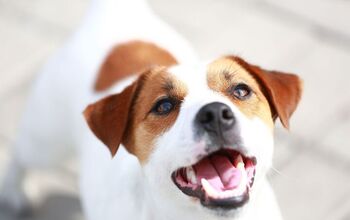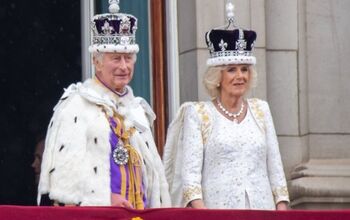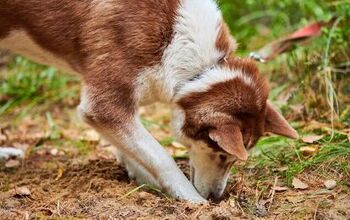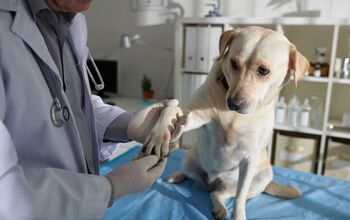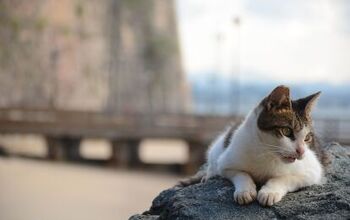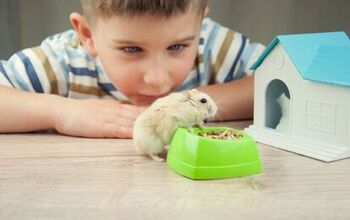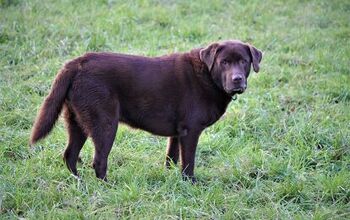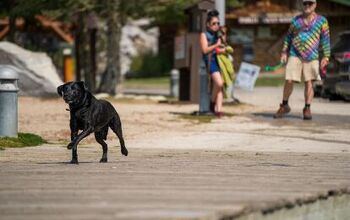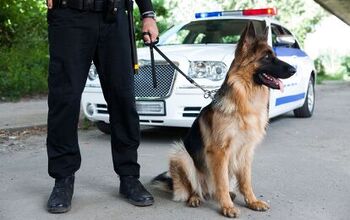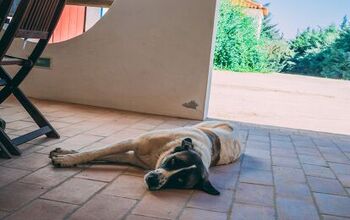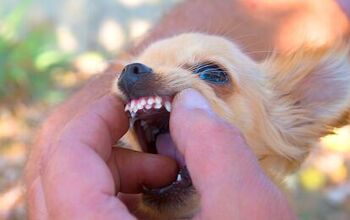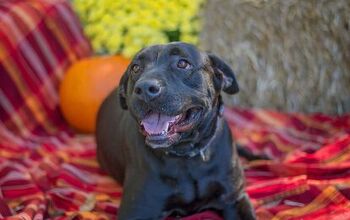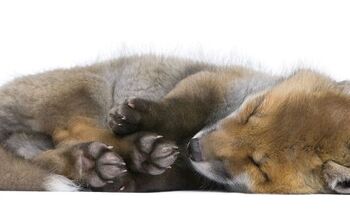Jack Russell Terrier


About Jack Russell Terrier
Sometimes big energy comes in small packages. Take the Jack Russell for example. Tiny dog, sure. But his personality? Absolutely huge. Too big, even. He may be small, but what the Jack Russell Terrier lacks in size, he more than makes up for in energy. Seriously, this little guy will run you ragged. What was once an English hunting dog, the Jack Russell is now a treasured companion to many households around the world. But if you’re planning on bringing one of these feisty dogs home, you had better be active – this little fella never stops (except for treats and belly rubs, of course).
Full of energy and exuberance, the Jack Russell Terrier is lively, busy, loves to hunt, and enjoys mental challenges. This is known to be an independent breed, so it is recommended that you should be an experienced dog owner. But once trained, you’ll find that the Jack Russell Terrier is a delight and is always up for amusement. He may tire you out, but this little guy will also never cease to entertain. So, it all works out.
The only question is whether one of these little bundles of energy and joy is the right dog for you! Fortunately, you’ve come to the right place to find out. Just keep your eyes glued to this page and scroll away. Everything that you could possibly want to know about Jack Russell Terriers is about to be revealed. If you can’t decide whether or not you want one of these dogs by the end of this article, then you’ll never know.
He may be small, but what the Jack Russell Terrier lacks in size, he more than makes up for in energy.
Named after a clergyman named Reverend John (Jack) Russell, this breed was used as a small game hunting dog in the mid-1800s. The standard for this breed was quite broad, which allowed for a wide range of accepted body types. In 2003, the Jack Russell Terrier Association of America changed its name to the Parson Russell Terrier Association of America. This differentiated the working types, which remained Jack Russells, while the American show types became known as Parson Russell Terriers. Regardless of which name that you choose to call him, this feisty fellow is always a charmer.
The first Jack Russell Terrier was named Trump, and she became the foundation for the breed. Based on her appearance, Trump is believed to have been a cross between a Black and Tan Terrier and a Fox Terrier. As well, it is thought that Fox Terriers and Beagles into introduced into the mix due to their hunting abilities. While Jack Russells appeared long before the designer dog craze, their origins are surprisingly similar. Breeders were determined to combine a variety of popular pups into one superdog destined to fill homes with joy across the land. To say they succeeded would be an understatement. These dogs haven’t dipped in popularity in decades.
This is one high-energy dog, and as such, you’ll need to feed your Jack Russell Terrier a high-power fuel food. A homemade diet of fresh meat and vegetables would be the best, but for many owners, this is just not possible. If you are going with a commercial food, be sure that the kibble is high quality.
It’s always wise to check in with your veterinarian before establishing or altering your dogs diet. While pet food manufacturers and pet blogs provide useful feeding guidelines, they are still guidelines and hardly gospel. All dogs are different, each with their own needs. The only person qualified to determine the specific dietary needs of your personal pooch is a vet. So always defer to your doggy doctor’s expertise before making any changes to what goes in his feeding bowl.
Because the Jack Russell is so smart, this breed excels in training exercises.
Because the Jack Russell is so smart, this breed excels in training exercises. Of course, being Terriers, you can expect some stubbornness. So, make sure to assert yourself as the pack leader and you will succeed with your training endeavors. For the best results, use positive reinforcement and treats to confirm a job well done. If you use harsh discipline, it may cause this dog to respond with snapping or biting (As well they should! Harsh disciplinary action is closer to abuse than training and should be avoided as much as possible). Also, it will help to mix up your daily training routine to keep your Jack Russell Terrier engaged and interested. If your puppy gets bored, he won’t pay attention to training. So you have to keep changing things up to make training sessions lively and exciting for the little fur ball.
Once your Jack Russell Terrier has mastered basic obedience, he can move up to advanced obedience, trick training, and agility work. This is an overachiever of a breed, so you can expect your Jack Russell to excel in every activity he participates in. You’ll be amazed what your Jack Russell will be able to do with the right training techniques and a little patience.
Jack Russell Terriers weigh 14 to 18 pounds. They are little pups with big hearts!
This is a classic case of a small dog that thinks he is huge. Expect lots of energy from this little guy. He never slows down. EVER. And because he is so smart, not much gets by him. With a mind of his own, the Jack Russell Terrier is peppy and sassy. He absolutely loves to put on a show for the attention. When raised as a puppy with children, this breed makes a wonderful family dog.
Some of the negative traits that you may see in a Jack Russell Terrier include excessive barking, willfulness, dog aggression, aloofness to strangers, possessiveness and jealousy (aka the dreaded “little dog syndrome.” But if you train your dog from a puppy, you should be able to curb these behaviors. It’s all about taking advantage of those early and impressionable puppy years to ensure that your dog grows up right.
Never let your Jack Russell off leash, except in an enclosed area – this breed will go after small animals and won’t respond to calls from you to come back. Those old hunting instincts are still locked in these pups and will pop up in these sorts of circumstances. These dogs love to dig as well, so keep your eyes on your dog. Don’t leave your Jack Russell Terrier unattended in the backyard, unless you want your landscaping dug up. Like we’ve said, these pooches have lots of energy and will burn it off in unfortunate ways if you aren’t careful.
There are a few common health concerns that can affect the Jack Russell Terrier. These include cataracts, cerebellar ataxia, Legg-Calve-Perthes disease, lens luxation, myasthenia gravis, patellar luxation, congenital deafness and von Willebrand disease.
Jack Russell Terriers have a life expectancy of 13 to 15 years.
Jack Russell Terriers need lots of room to move around, so they aren’t the best choice for apartments. If stuck in a small living area, it may lead to destructive behavior such as chewing. A fenced-in yard is best for this breed, but he should always be supervised, as he will take off after small animals and dig up a storm.
Take your Jack Russell out for a daily walk and let him run around in the yard. If you want to tire him out, a hearty game of catch will always set tails wagging. This breed loves balls and will gladly bring it back to you until your arm tires out. They can’t get enough of fetch, so you’d better strengthen up those arm muscles!
Just as important as physical activity is mental stimulation. The Jack Russell Terrier is an intelligent dog and will excel in agility activities including sprinting, flyball competitions, obstacle courses and retrieving. This covers your Jack Russell for both physical and mental stimulation requirements.
You can even put those digging skills to good use by enrolling in “Earth Dog” activities. This is where dogs are allowed to dig in search of rodents. Jack Russell Terriers will love this activity, as it satisfies their need to dig and hunt. Obviously, this is a productive way satisfying your Jack Russell’s hunting instincts that will keep them better behaved elsewhere.
This is a classic case of a small dog that thinks he is huge.
The Jack Russell Terrier was at one time AKC recognized the Jack Russell Terrier. But as of April 1, 2003, the breed was split into two: the Parson Russell Terrier (which the AKC recognizes) and the Jack Russell Terrier (which the AKC does not recognize). The Jack Russell is recognized by the Australian National Kennel Council, American Rare Breed Association, American Russell Terrier Club, Irish Kennel Club and the FCI.
With the Jack Russell Terrier, you usually see two types of coat: smooth or broken. Both types are double coats with a coarse texture. The broken coat is a bit longer than the smooth coat, and on its face, it looks like it has eyebrows and a beard. There is also a third type of coat: the rough coat. This type of coat is longer than the broken coat but is not curly or wavy. Jack Russell Terriers can be white, white with black markings, white with tan markings, or tricolor (white, black and tan).
These puppies are cute, but don’t let that distract you from stepping into your roll as the pack leader. These cutie-pies need to be taught who the alpha in the relationship is or they will march all over their humans. In order to curb bad behavioral habits, you need to start training and socialization as early as possible. It’s much harder to curb bad behavior in adult dogs than puppies, after all. Also, in order to ensure household harmony, puppies should be raised alongside children. Otherwise, your Jack Russell might get a little jealous and confused by the human puppies marching around his home.

Amy Tokic, Editor of PetGuide.com, is a passionate animal lover and proud pet parent of Oscar, a Shih Tzu/Chihuahua cross, and Zed, a Japanese Chin. Her love of animals began in kindergarten, when she brought her stuffed dog Snoopy into class with her every day. Now, she writes about her adventures in pet ownership and tirelessly researches products, news and health related issues she can share with other animal enthusiasts. In her free time, Amy loves perusing used book and record stores, obsessing over the latest pet products available and chasing squirrels with wild abandon (a habit attributed to spending too much time with her pooches).
More by Amy Tokic



